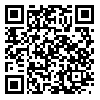Tue, Jan 27, 2026
[Archive]
Volume 2, Issue 2 (6-2023)
RHMS 2023, 2(2): 33-40 |
Back to browse issues page
Download citation:
BibTeX | RIS | EndNote | Medlars | ProCite | Reference Manager | RefWorks
Send citation to:



BibTeX | RIS | EndNote | Medlars | ProCite | Reference Manager | RefWorks
Send citation to:
Arabali M, Rajabi E, Hosseinzadeh M, Dashti S, Ahmadi Chenari H. The Correlation between Emotional Intelligence and Professional Identity among Operating Room Technologists and Anesthesiologists at Hospitals Associated with Birjand University of Medical Sciences. RHMS 2023; 2 (2) :33-40
URL: http://jrhms.thums.ac.ir/article-1-77-en.html
URL: http://jrhms.thums.ac.ir/article-1-77-en.html
Department of Nursing, Ferdows Faculty of Medical Sciences, Birjand University of Medical Sciences; Hazrat Rasoul Hospital of Ferdows, Birjand University of Medical Sciences, Birjand, Iran , Ahmadi.h@bums.ac.ir
Abstract: (710 Views)
Emotional Intelligence is a key determinant of success in professional and social domains, characterized by the ability to comprehend, regulate, and utilize emotions effectively. Professional identity, a critical construct in healthcare, reflects an individual’s understanding of their roles, values, and professional objectives. This study aimed to investigate the correlation between emotional intelligence and professional identity among surgical technologists and anesthesiologists in hospitals affiliated with Birjand University of Medical Sciences, to provide insights for enhancing professional competencies. This correlational study included 230 surgical technologists and anesthesiologists from hospitals associated with Birjand University of Medical Sciences. Participants completed a demographic questionnaire, the Professional Identity Questionnaire, and the Schering Emotional Intelligence Questionnaire. Data were analyzed using SPSS version 24, employing descriptive statistics and inferential tests, including correlation analysis. A significance level of p<0.05 was considered for all statistical tests. The mean age of participants was 32.74 ± 6.64 years, with 48% male and 52% female. Emotional intelligence (mean score: 101.73 ± 13.02) and professional identity (mean score: 55.95 ± 12.77) demonstrated a significant positive correlation (ρ = 0.173, p<0.001). Dimensions of EI, such as self-motivation, self-awareness, self-control, empathy, and social skills, were significantly associated with various aspects of professional identity, including professional self-image, social comparison, and social modeling. The strongest correlation was observed between social skills and social modeling (ρ=0.302, P<0.01). The findings underscore the vital role of emotional intelligence in shaping professional identity among operating room and anesthesia technologists. Enhancing EI through targeted training programs could improve professional identity, contributing to better job performance and quality of care
Keywords: Emotional Intelligence, Professional Identity, Surgical Technologists, Anesthesiologist, Healthcare
Subject:
General
Received: 2025/01/22 | Accepted: 2025/06/8 | Published: 2025/07/8
Received: 2025/01/22 | Accepted: 2025/06/8 | Published: 2025/07/8
Send email to the article author
| Rights and permissions | |
 | This work is licensed under a Creative Commons Attribution-NonCommercial 4.0 International License. |




